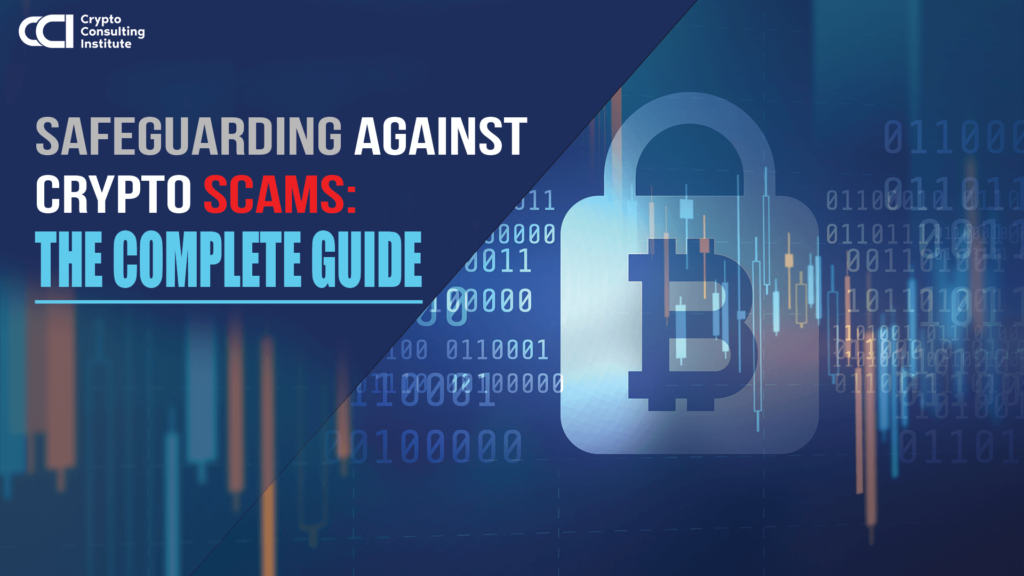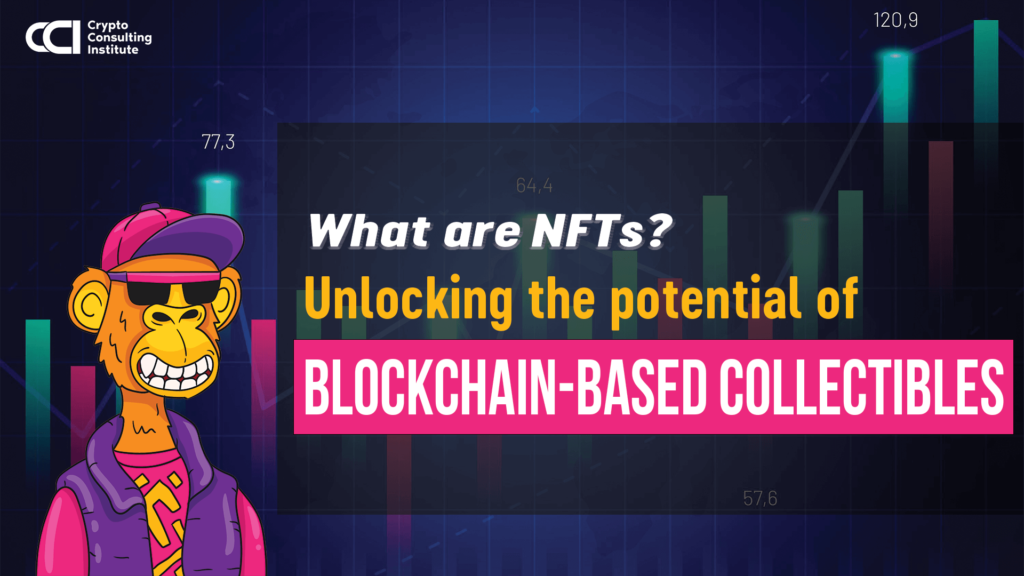Safety First
To stay safe in the cryptocurrency space, individuals should use strong passwords and two-factor authentication, keep their software up to date, be cautious of clicking on unknown links, and only invest what they can afford to lose. Education and awareness are vital in mitigating potential risks and making informed decisions in the crypto market.
Key Takeaways
- Cryptocurrency scams are prevalent on social media platforms and come in various forms, including phishing, direct transfer scams, social engineering, romance scams, and giveaway scams. Individuals should remain vigilant and cautious while interacting online and avoid sharing sensitive information with unknown entities.
- To safeguard against crypto scams, individuals should be cautious of unsolicited offers, thoroughly research projects before investing, never share private keys, use secure wallets and exchanges, and be aware of common scam signs such as promises of high returns with low risk.
- It’s crucial to verify the legitimacy of cryptocurrency projects by evaluating white papers, checking team credentials and transparency, and avoiding investments in projects that lack clarity or seem unprofessional. Scammers often use deceptive tactics to attract victims, so being proactive in verifying project details is essential.
- If someone falls victim to a cryptocurrency scam, they should report it to the authorities and contact their cryptocurrency exchange for assistance. Additionally, individuals should learn from the experience to avoid future scams and be cautious of sharing personal information online.
While decentralised finance (DeFi) tops the list as the primary source of crypto fraud, social media remains rampant with deceptive schemes. In 2022, even Metallica and other top artists had to issue a cautionary statement to their fans about crypto-related scams on social media before their album release. This is just one way scammers try to target unsuspecting individuals for their crypto.
Cryptocurrency crime had a record-breaking year in 2021 – according to a report by blockchain data firm Chainalysis, fraudsters stole $14 billion of crypto that year. If you’re interested in crypto, it’s important to be aware of the risks!
This comprehensive guide will empower you with the knowledge to identify and protect yourself against cryptocurrency scams. We hope to create a safer and more informed environment for everyone involved in the crypto space.
Types of Cryptocurrency Scams
Initiatives Targeting Access to Digital Wallets
Cryptocurrency scammers often attempt to gain access to your digital wallet or authentication credentials. They may employ tactics such as phishing emails, fake websites, or social engineering techniques to trick you into revealing private information or security codes. It is important to remain cautious and avoid sharing any sensitive information with unknown or unverified entities.
Direct Transfer Scams and Impersonation
Scammers may impersonate trusted individuals, celebrities, or influential figures to gain your trust and convince you to transfer cryptocurrency directly to their compromised digital wallets. They often present enticing investment opportunities or promise to multiply your crypto holdings. Be wary of such claims and never send cryptocurrency to unknown individuals or entities without thorough verification.
Social Engineering Scams
Social engineering scams rely on psychological manipulation to obtain vital information related to your crypto accounts. Scammers may pose as government agencies, well-known businesses, tech support personnel, community members, work colleagues, or even romantic interests. They gradually build trust and then request access to your crypto assets or sensitive information. Always be cautious when interacting with individuals online and avoid sharing personal or financial details without proper verification.
Romance Scams
Romance scams often originate on dating websites, where scammers build relationships with unsuspecting individuals. Once trust is established, the conversation may shift towards lucrative cryptocurrency opportunities, leading to requests for coin transfers or account authentication credentials. Exercise caution when engaging in online relationships and ensure you meet potential partners in person before considering financial transactions.
In 2022, a woman in the United Kingdom met a man on a dating website. They started chatting, and quickly developed feelings for each other. After a few weeks, the man started talking about cryptocurrency. He told the woman that he was a successful cryptocurrency investor, and he encouraged her to invest in crypto. The woman, whose name is Sarah, sent the man some cryptocurrency, and at first, she made some profits. However, the profits started to dry up, and she started to lose money. She contacted the man, but he stopped responding to her messages. She realised that she had been scammed. The man who scammed Sarah was actually a Nigerian scammer. He used a fake profile on the dating website, and he posed as a successful cryptocurrency investor named John Smith. He convinced Sarah to invest in cryptocurrency by sending her fake screenshots of his trading profits. Sarah lost a total of £80,000 in the scam. She reported the scam to the dating website, but the man was never caught. Sarah is now warning other people about the dangers of romance scams involving cryptocurrency. She says that she was "blinded by love" and that she "didn't think that someone would lie to me like that."
Imposter and Giveaway Scams
Scammers may pose as celebrities, businesspeople, or cryptocurrency influencers to gain attention and credibility. They often promise to match or multiply the cryptocurrency sent to them in what is known as a giveaway scam. To appear legitimate, scammers create well-crafted messages and mimic existing social media accounts. Be cautious of any requests for cryptocurrency transfers, especially if they promise extraordinary returns or urgent action.
Scammers use giveaway scams to exploit the desire for quick gains in the crypto community. They create a sense of urgency and convince individuals to transfer funds in hopes of receiving an instant return. Legitimate giveaways are rare, and no one is entitled to free coins or money. Exercise scepticism and do not send cryptocurrency to unknown individuals or entities promising giveaways.
Jane was a crypto enthusiast who had been following the recent surge in Bitcoin prices. She was eager to get in on the action, but she didn't have a lot of money to invest. One day, she saw a tweet from a seemingly legitimate account that claimed to be giving away 100 Bitcoin to its followers. The tweet said that all Jane had to do was send 0.1 Bitcoin to a specific address to verify her account. Jane was sceptical, but she was also tempted by the prospect of getting 100 Bitcoin for free. She decided to send the 0.1 Bitcoin, and she waited anxiously for her prize. A few days later, Jane still hadn't received her Bitcoin. She tried to contact the account that had tweeted the giveaway, but the account had been deleted. Jane realised that she had been scammed. She had lost her 0.1 Bitcoin, and she was no closer to getting rich quickly.
Phishing Scams
Phishing scams in the cryptocurrency industry aim to acquire information related to online wallets, particularly private keys. Scammers send deceptive emails with links that lead victims to fake websites, where they are prompted to enter private keys or sensitive data. These scams are prevalent and can result in the loss of your crypto assets. Always verify the authenticity of websites and never share your private keys or sensitive information through unsecured channels.
Be vigilant when encountering websites that appear suspicious or poorly designed. Legitimate cryptocurrencies provide detailed information in white papers and transparently outline their protocols and blockchain functionalities. Fake cryptocurrencies often have poorly written white papers, contain inconsistent figures, lack clarity regarding fund utilisation, or generally seem unprofessional. Additionally, never share your private keys with anyone, as this compromises the security of your cryptocurrency holdings.
Want to be assisted through the fascinating world of cryptocurrency with top educational insights and a proven 5 pillar investment system? Check out the success stories of many other investors who have desired trusted guidance along the way, leading to incredible success.
Blackmail and Extortion Scams
Scammers may send threatening emails claiming to have compromising information about you and demanding payment in cryptocurrencies to prevent the release of that information. These extortion attempts aim to exploit fear and panic. Stay calm, do not engage with scammers, and report such incidents to the relevant law enforcement authorities. All countries will have different reporting mechanisms, so be sure to research and utilise the appropriate channels to report such scams.
John was a software engineer who worked for a large tech company. He was well-respected by his colleagues and had a good reputation. One day, John received an email from an anonymous sender. The email claimed that John had been caught visiting an adult website. The sender threatened to release the information to John's employer and family if he didn't pay them 1 Bitcoin. John was shocked and scared. He didn't know what to do. He didn't want his family or employer to find out about his visit to the adult website. He also didn't want to pay the scammers, but he was afraid of what they would do if he didn't. John decided to consult with a lawyer. The lawyer advised him not to pay the scammers. The lawyer said that the scammers were likely bluffing and that there was no guarantee that they wouldn't release the information even if he paid them. The lawyer also said that paying the scammers would only encourage them to continue their criminal activities. John took the lawyer's advice and didn't pay the scammers. He also reported the incident to the authorities. The authorities were unable to track down the scammers, but John was glad that he didn't give in to their demands.
Investment or Business Opportunity Scams
Scammers often entice individuals with promises of guaranteed high returns on cryptocurrency investments. They may use complex investment jargon or claim insider knowledge to appear legitimate. However, no investment can guarantee consistent or extraordinary returns. Exercise caution when considering investment opportunities and conduct thorough research before committing any funds.
Bogus investment opportunities often involve pyramid schemes, Ponzi schemes, or unregulated initial coin offerings (ICOs). Scammers may present fraudulent business models, misrepresent team members’ credentials, or exaggerate the potential returns to attract unsuspecting investors. Before investing, verify the project’s legitimacy, research the team’s background, and ensure compliance with applicable regulations.
New Crypto-Based Opportunities: ICOs and NFTs
ICOs are crowdfunding mechanisms used by blockchain projects to raise capital. However, scammers may launch fake ICOs, collect funds, and disappear without delivering the promised products or services. Thoroughly investigate ICO projects, review their white papers, assess the team’s credibility, and consider expert opinions before investing.
NFTs have gained popularity as unique digital assets, but scammers may exploit this trend. Be cautious when purchasing NFTs and only transact on reputable platforms. Verify the authenticity of the NFT, the reputation of the seller, and the legitimacy of the marketplace before making a purchase.
Rug Pulls
A rug pull refers to an exit scam where the creators of a cryptocurrency project abandon the project after accumulating a substantial amount of investments. Signs of a potential rug pull include a lack of transparency, limited community engagement, and sudden closure of communication channels. Perform due diligence before investing in a project and consider the reputation, transparency, and long-term commitment of the team behind it.
“Sarah was a young investor who was eager to get involved in the cryptocurrency market. She had been following the recent surge in Bitcoin prices, and she was convinced that she could make a lot of money by investing in the right project. One day, Sarah came across a new cryptocurrency project called "The Moonshot." The project promised to revolutionise the way people invest in cryptocurrency, and it had already attracted a large following. Sarah was impressed by the project's website and whitepaper, and she decided to invest. Sarah invested a significant amount of money in The Moonshot, and she watched as the price of the token soared. She was thrilled with her investment, and she couldn't wait to see how much money she would make. However, a few days later, the price of the token started to plummet. Sarah tried to sell her tokens, but she couldn't find any buyers. She soon realised that she had been the victim of a rug pull. The developers of The Moonshot had abandoned the project and taken all of the investors' money. Sarah was left with nothing but worthless tokens.”
Cloud mining scams involve companies or platforms offering mining services without delivering the promised returns. Thoroughly research and verify the reputation of any cloud mining platform before investing funds. Look for user reviews, check for registered company information, and consider the credibility of the team behind the platform.
“HashOcean, a cloud mining platform that promises high returns on investment” HashOcean claimed to have data centres in different countries and offered investors the opportunity to purchase mining contracts. However, in 2016, the platform suddenly shut down, and investors lost their funds. Investigations revealed that HashOcean was a Ponzi scheme, where returns were paid to early investors using new investor investments rather than actual mining profits. The platform had no real mining operation, and the team behind it was anonymous. This is a classic example of a cloud mining scam, where investors are lured into investing funds with the promise of high returns with little to no risk, but the returns are paid to early investors using new investor investments rather than actual mining profits.
Spotting Cryptocurrency Scams – Staying ahead
Evaluating White Papers
White papers outline the technology, purpose, and goals of a cryptocurrency project. Examine the white paper critically, ensuring it provides detailed information about the project’s development, use case, team, and token distribution. Beware of projects with vague or poorly written white papers lacking technical depth or a clear roadmap.
Verifying Team Credentials and Transparency
Verify the credentials and background of the project team members. Look for publicly available information, including their professional profiles, social media presence, and previous project involvements. Transparent projects typically have visible team members who actively engage with the community and address concerns.
Beware of promises of high returns.
Legitimate investments cannot guarantee high returns, especially not in a short timeframe. If someone is offering you a guaranteed way to make a lot of money, it’s probably a scam. Some red flags to look out for include promises of returns that are too good to be true, claims that you can make money without any risk, pressure to invest quickly, and offers that are only available for a limited time or to a select group of people.
Don’t invest in anything you don’t understand.
If you don’t understand how a cryptocurrency works or what the project is trying to achieve, it’s best to avoid it. Scammers often target people who are new to cryptocurrency and don’t know what to look for. Before you invest in any cryptocurrency, make sure you read the white paper, research the team members, and check out the project’s social media presence.
Do your own research
Before you invest in any cryptocurrency, it’s important to do your own research. This includes reading the white paper, researching the team members, and checking out the project’s social media presence. You can also use resources like CoinMarketCap, Coingecko, and other platforms to learn more about cryptocurrencies.
Be wary of unsolicited messages.
If you receive an unsolicited message from someone who is trying to sell you cryptocurrency, it’s probably a scam. Legitimate investment opportunities are not typically sold through cold calls or emails. Be on the lookout for messages that are sent from unknown senders, contain links or attachments, or are overly aggressive or persuasive.
Use a reputable exchange.
When you buy or sell cryptocurrency, it’s important to use a reputable exchange. This will help protect your funds from being stolen and will give you sufficient liquidity to execute your exchange. When choosing an exchange, look for one that has a good reputation, high liquidity, strong security measures, and support for multiple cryptocurrencies.
Final Thoughts
The cryptocurrency space is a vast and ever-evolving landscape, and with it comes a wide range of opportunities and risks. As the popularity of cryptocurrency continues to grow, so too does the number of scams targeting investors.
By familiarising yourself with the various types of cryptocurrency scams and understanding the strategies scammers employ, you can take proactive steps to protect your crypto assets.
A few tips to help you stay safe:
Be wary of unsolicited offers. If you receive an email or message out of the blue offering you a guaranteed way to make money with cryptocurrency, it’s probably a scam.
Do your research before investing. Before you invest in any cryptocurrency, make sure you do your research and understand the risks involved.
Never give out your private keys. Your private keys are the keys to your cryptocurrency wallets, so never share them with anyone, not even someone you trust.
Use a secure wallet. There are many different types of cryptocurrency wallets available, so choose one that is secure and reputable.
Be aware of the signs of a scam. Some common signs of a cryptocurrency scam include:
- Promises of high returns with little or no risk
- Pressure to act quickly
- Requests for personal or financial information
- Unrealistic investment opportunities
If you think you may have been the victim of a cryptocurrency scam, there are a few things you can do:
Report the scam to the authorities. Look for your local authority that deals with cryptocurrency scams and report it immediately to avoid others becoming a victim.
Contact your cryptocurrency exchange. If you lost cryptocurrency through a scam, contact your cryptocurrency exchange and let them know what happened. They may be able to help you recover your funds.
Learn from your mistakes. Once you’ve been scammed, it’s important to learn from your mistake so that you don’t fall victim to another scam in the future.
Here are some additional tips to help you stay safe in the cryptocurrency space:
- Use strong passwords and two-factor authentication. This will help protect your accounts from unauthorised access.
- Keep your software up to date. Software updates often include security patches that can help protect you from malware and other threats.
- Be careful what links you click on. Scammers often use malicious links to trick people into giving up their personal information or downloading malware.
- Don’t share your private keys with anyone. Your private keys are the keys to your cryptocurrency wallets, so never share them with anyone, not even someone you trust.
- Be aware of the risks involved in cryptocurrency trading. Cryptocurrency trading is a risky investment, so only invest what you can afford to lose.
We trust that this blog provides you with valuable insights. Don’t hesitate to contact our team if you want to accelerate your crypto outcomes and mitigate potential risks. We are more than happy to help.
Joe and the CCI Team








